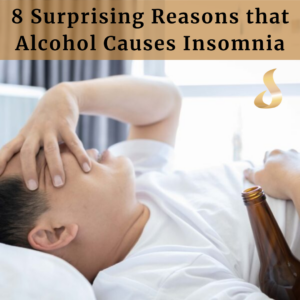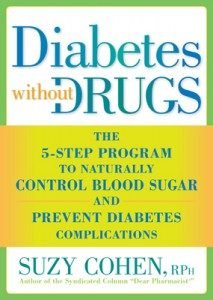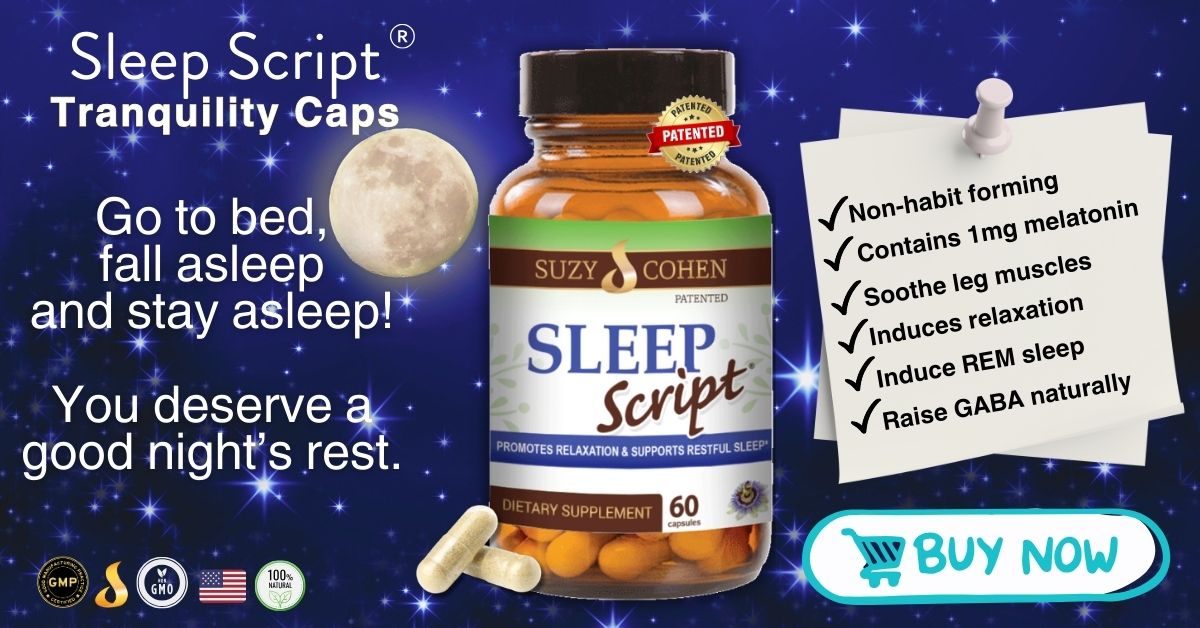What's On This Page?
ToggleLosing independence is something most of us never think about until it happens. Maybe you notice you’re struggling with balance, having difficulty remembering simple things, or feeling weaker than before. If you’ve had a recent fall or needed extra help with daily like getting your pants up, picking up things that fall on the floor, or seeing clearly, you probably worry about becoming a burden to your family.
But here’s the truth: Losing independence is sometimes preventable. You can take steps today to protect yourself from relying too heavily on others. As a pharmacist, I see firsthand how medications affect independence, for better or worse. Some drugs can increase your risk of falls, blur your vision, cause brain fog, or loss of mobility. On the other hand, the right medications, supplements, and lifestyle changes can help you stay strong and independent.
Let’s dive into 3 critical areas that impact independence, and then I’ll give you 20 practical solutions to help you regain control over your daily life.
1. Medication-Induced Loss of Independence
Some medications might be robbing you of your strength, balance, and cognition without you even realizing it. If you’re struggling with mobility, dizziness, or memory issues, your prescriptions (or over-the-counter meds) could be to blame. Here are some of the worst offenders below. I am not saying to discontinue these, I am just listing them so you can see if you take one of them, and if so, you’ll know how it could impact your independence. Here goes in no particular order:
- Sedatives & Sleeping Pills (Benzodiazepines, Z-Drugs) – Medications like diazepam (Valium), alprazolam (Xanax), zolpidem (Ambien), and others can increase your risk of falls, confusion, and dependence. Your dose may be too high, or you might be taking these drugs with others (like opiates) that enhance the ‘zombie’-like feelings – talk to your doctor about tapering, dose timing, or safer alternatives like melatonin or sleep hygiene strategies.
- Anticholinergic Drugs – These affect memory, balance, and bladder function. Medications like diphenhydramine (Benadryl), oxybutynin (for bladder control), and some antidepressants (amitriptyline, doxepin) can cause brain fog and muscle weakness; ask your provider if a non-anticholinergic substitute could work just as well with fewer side effects. These drugs can easily cause blurry vision which could steal your independence if you misstep and fall down the stairs, or off a sidewalk. That’s why I wrote this article, 7 Key Strategies to Combat Blurry Vision: A Comprehensive Guide.
- Blood Pressure Medications (Beta Blockers & Diuretics) – Drugs like metoprolol, atenolol, hydrochlorothiazide (HCTZ), and furosemide (Lasix) can cause dizziness, dehydration, and electrolyte imbalances. Be sure to drink enough water, monitor your blood pressure regularly, and ask your pharmacist if timing (like taking it at night) could reduce side effects. Just simply changing the time you take a medication can offer you more independence because (for example), if something makes you drowsy and loopy all day, taking it at night rather than morning gives you daily independence.
- Opioids & Pain Relievers – Medications like hydrocodone, oxycodone, tramadol can cause drowsiness, slowed reflexes, and increased fall risk. Try non-drug approaches for pain first, and if you must take opioids, take them only when needed and never mix with sedatives or alcohol.
- Certain Diabetes Medications – Insulin or sulfonylureas (e.g., glipizide, glyburide) can cause hypoglycemia, leading to dizziness, falls, or fainting. Check your blood sugar frequently, take medications as directed (often before meals), carry glucose tablets, and consider wearing a medical alert bracelet in case of emergency.
What to do: If you’re taking any of these medications, speak with your doctor or pharmacist about safer alternatives or possible dose adjustments. Never stop medication abruptly – some drugs require careful tapering to avoid withdrawal or serious side effects. The key is to advocate for yourself. Your independence may depend on a few small, but important, changes.
2. Medications & Supplements That Can Help
While some medications hinder independence, others can support your brain (if only for a little while) your muscles, and yourability to walk. Consider these:
- Acetylcholinesterase Inhibitors (for Brain Health) – Drugs like donepezil (Aricept®) or rivastigmine (Exelon®) help with cognitive function in people with early memory loss. These all require a prescription and a supporting diagnosis. They do have side effects but most of the time the benefits outweigh them. It’s a trial and error thing if you have Alzheimer’s or other memory loss. This article may help you: Treating Alzheimer’s Disease: 3 Pharmaceuticals and 3 Natural Options.
I’ve also written this article and it connects quinolinic acid to brain issues: Alzheimer’s: The Scariest Word You May Ever Hear.
- Vitamin D and Calcium – Essential for bone health and fall prevention. Low levels can lead to muscle weakness and fractures. Check your levels routinely, at least annually and if they’re low then just supplement. Calcium is regulated by your 4 tiny parathyroid glands, and if you have hypercalcemia (high levels) that could indicate hyperparathyroidism. I had this condition and had to have surgery for it because there’s no natural remedy or medication. Read more here: Parathyroid Disease: My Recovery and Reflections.
Fewer falls because you have strong bones = independence! - Magnesium Glycinate or Citrate – Supports muscle relaxation and nerve function, reducing cramping and stiffness. Similarly to D and calcium above, you can evaluate levels with a blood test, and if deficient just supplement. Low mood, poor sleep and leg cramps are sometimes a tell-tale clue. Interested in a high-quality, gentle-on-your-tummy form of CHELATED MAGNESIUM? Try my brand, I guarantee you’ll love it and it’s patented, and biologically active.

- CoQ10 and Alpha-Lipoic Acid – Boost mitochondrial energy production, helping maintain muscle strength. It’s hard to get too much of these, and both of them support your nerve sheath, brain, and liver. If you’re interested in ever taking lipoic acid supplements (which are sold online and at health food store), read this article about it: Sulfur Sensitivity: The Hidden Culprit Behind Some “Unexplainable” Reactions.
You may also be interested in this article which mentions “lipoic acid” – 7 Proven Methods to Soothe Diabetic Nerve Pain and Inflammation.
- Lion’s Mane Mushroom & Omega-3s (DHA/EPA) – May support brain health and slow cognitive decline. I’ve written this exclusive article called, What’s the #1 Memory Herb? (Spoiler – it’s about Lion’s Mane!) And I want you to know that I’ve included a full dose of this incredible natural nootropic in my patented formula, Memory Script®.
- Creatine Monohydrate – An intriguing dietary supplement that helps maintain muscle mass and strength, especially if you’re over 60 or working out a lot. Be careful though, start with way less than recommended because it can cause leg cramps and spasms if you get too much, or get dehydrated.
- Methylated B Vitamins (B6, B12, Folate) – Essential for nerve function and energy production, preventing fatigue and neuropathy. Most don’t work because they’re inactive in the bottle, and they’re not methylated. If you want one that works, consider Mito B Complex.
The Hidden Thief of Independence: Drug-Nutrient Depletions (a.k.a. Drug Muggers®)
You may be doing everything right—taking your medications as prescribed, eating a fairly balanced diet, and trying to stay active. But what if your medications were quietly robbing you of the very nutrients your body needs to stay independent?
Many common drugs—especially long-term prescriptions—can act as what I call “Drug Muggers®,” meaning they steal essential nutrients from your body. Over time, this depletion can contribute to symptoms that seem unrelated to the medication itself—things like:
- Muscle cramps
- Restless legs
- Blurry vision or dry eyes
- Headaches or brain fog
- Fatigue
- Numbness, tingling, or poor balance
These side effects can mimic aging or disease, but often, they’re simply the result of nutrient loss. For example:
- Statins can deplete CoQ10, leaving your muscles weak and fatigued. Read: The Big List Of Drugs That Mug CoQ10
- Diuretics (like furosemide or HCTZ) can rob you of magnesium, potassium, and B vitamins, leading to cramps and dizziness.
- Metformin can lower vitamin B12, which is crucial for nerve function and balance.
- Acid blockers (PPIs) can reduce magnesium, calcium, and zinc, weakening bones and impairing digestion.
- Even daily coffee and alcohol can deplete B vitamins and minerals that keep your brain and muscles sharp.
These drug-induced nutrient depletions don’t always show up on routine lab work, but they can absolutely chip away at your independence over time.
🔎 Want to dig deeper into this? My best-selling book, Drug Muggers (available here on AMAZON), outlines the top culprits and exactly which nutrients they steal, plus how to safely restore what your body needs.
💊 If you’re on long-term medications, ask your pharmacist about possible nutrient depletions and whether targeted supplementation might help you feel stronger, sharper, and more balanced.
Always check with your healthcare provider before starting new supplements, especially if you’re on multiple medications. Now let’s talk about cool tools and gadgets.
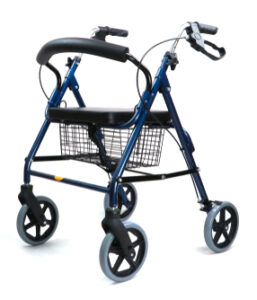
3. Assistive Devices & Tools to Maintain Independence
Beyond medications and supplements, the right items can help you regain some control over your daily life. Here’s a detailed list of what I think would make a huge difference:
Mobility & Fall Prevention
Rollator Walker – More stable than a standard walker and includes a built-in seat for resting during long walks or errands.
Slip-In Skechers or No-Tie Shoes – Easy to put on without bending down, and they stay secure without needing to be re-tied.
Long-Handled Shoe Horn – Helps slide shoes on smoothly without bending, reducing strain on the back or hips.
Reacher Grabber “Pick Up” Tool – Essential for picking up dropped items or reaching shelves without climbing or bending.
Non-Slip Socks & Slippers – Provide grip and help prevent slips on hardwood or tile floors.

Bedside Grab Bar – Offers support for getting in and out of bed safely, especially in the middle of the night.
Shower Chair & Handheld Shower Head – Enables safe, seated showering and easier control of water direction.
Raised Toilet Seat with Handles – Adds height and side support to help users sit and stand without strain.
Stair Lift or Home Elevator – A long-term solution for multi-level homes, reducing the need for constant assistance.
Smart Fall Detection Devices – Wearables like Apple Watch or Medical Alert Systems can detect a fall and alert emergency contacts.
Smart Health Wearables – Devices like a smart-watch, or medical-grade ‘health wearable’ can do more than detect falls, they can monitor your heart rate, oxygen levels, sleep quality, and even alert emergency contacts. These tools are game-changers for people who want to live independently while staying connected and safe.
If you’re curious about cutting-edge options, check out my article: Revolutionizing Health: 15 Life-Changing Wearables, Implantable and Stick-On Devices.
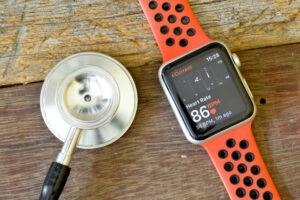
Daily Living Aids
Electric Jar Opener – Automatically twists open tough lids, ideal for arthritic hands or low grip strength. If you don’t want an electric jar opener, try a non-slip silicone jar gripper or a rubber lid cover – both add extra traction so you can twist lids open with less hand effort. I have one of those in my drawer and use it all the time. For even more support, they make manual multi-size can openers that fit under your cabinet and hold a jar in place while you twist, no strength required.
Adaptive Utensils – Ergonomic grips and weighted handles make eating easier for people with tremors or weakness.
Automatic Pill Dispenser – Organizes and dispenses meds at the right time, with alarms and locked lids for safety. There are a bunch of these if you do a Google search, and one is MedReady 1700 Medication Dispenser, but it has mixed reviews. Some love it, some don’t. There is also this one which seems to have better reviews: Daviky Pill Dispenser Daily, Large Pill Organizer with Wall-Mounted or Standing Use.
Voice-Activated Smart Assistants (Alexa, Google Home) – Can control lights, appliances, reminders, and emergency calls.
Motion-Sensor Lights – Automatically illuminate hallways, bathrooms, or staircases, reducing nighttime fall risk.
Toothbrush with Built-In Bite Assist or Power Handle – Electric toothbrushes with a larger, easy-grip handle or bite-support help those who can’t raise their arms easily to brush.
One-Touch Electric Can Opener – Opens metal cans with the push of a button, no twisting or squeezing needed. If glass jars are the problem (not cans) then scroll above to that section so you can see those options.
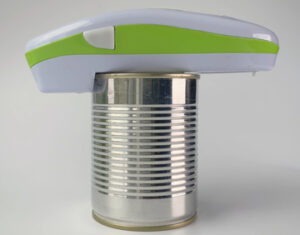
Accessibility & Vision Aids
Large-Print or Voice-Controlled E-Readers (like Kindle with Alexa) – Magnifies text and can read aloud to those with vision challenges.
Magnifying Glass Lamp or Headband Magnifier – Bright light plus hands-free magnification for reading, hobbies, or medication labels.
Talking Prescription Labels (ScripTalk) – Pharmacy-labeled bottles that read instructions aloud at the touch of a button.
Bold, High-Contrast Remote Controls or Telephones – Easier to see and operate, even with low vision or tremors.
Transportation & Independence
Foldable Mobility Scooter – Portable, lightweight, and great for running errands or traveling.
Car Door Assist Handle – Inserts into the door latch to give extra leverage when exiting a vehicle.
Seat Lift Recliner Chair – Gently lifts the person into a standing position to reduce strain on knees and back.
Ergonomic Cane with LED Light – Offers support and illumination in dim lighting or uneven terrain.
Smart Home Modifications – Voice-activated lights, thermostats, locks, and security systems increase independence and safety.
Sleep & Pain Relief
Weighted Blanket – Provides calming pressure that can eases anxiety during nighttime hours. Read my ARTICLE on weighted blankets.
Wedge Pillow or Adjustable Bed Base – Helps elevate the upper body to relieve back pain or acid reflux that interferes with sleep.
Heated Elbow Wrap (for Tendonitis) – Delivers gentle warmth and compression to soothe inflamed tendons.
 Anti-Tendonitis Arm Braces or Sleeves – Supportive braces reduce strain on the elbow during daily tasks or repetitive motion.
Anti-Tendonitis Arm Braces or Sleeves – Supportive braces reduce strain on the elbow during daily tasks or repetitive motion.
White Noise Machine or Sleep App – Blocks out distracting sounds and creates a calming bedtime routine. It’s not really for “independence” it’s just comforting to help you sleep, which can make your days go better!
Infrared or Red Light Therapy Device (for Knee or Joint Pain) – These FDA-cleared home devices deliver therapeutic wavelengths deep into tissues to reduce inflammation and pain—great for knees, elbows, and stiff joints. Look for products that emit red/660nm and Near Infrared (NIR) 850nm or a 50/50 combination of both red and NIR for pain relief.
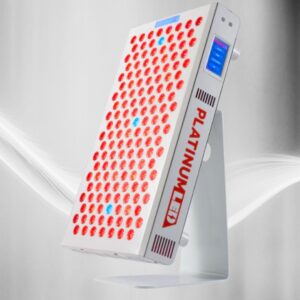
Final Thoughts
Losing independence isn’t inevitable—it’s often preventable. Small, smart changes in your medications, daily routines, and home environment can go a long way toward keeping you strong, safe, and self-sufficient.
By reviewing your prescriptions, adding supportive supplements, and incorporating practical tools—from mobility aids to vision-friendly gadgets to sleep and pain relief devices—you can maintain control over your life and reduce the risk of becoming a burden on your loved ones.
If you or someone you care about is starting to struggle with everyday tasks, don’t wait for a fall, injury, or crisis to prompt action. Start now. Be proactive. The right adjustments today can preserve your independence for years to come.
💡 Pharmacist’s Tip: Not sure where to start? Ask your local pharmacist for a medication review. It can’t usually be done on the spot, but with patience, they may be able to tell you what’s interacting, and what could be causing a specific adverse reaction.
We’re medication specialists and we’re trained to spot interactions, dose issues, or side effects that may be silently stealing your strength or balance. We can help you tailor your regimen to support your long-term independence.
Which of these tools or tips could make a difference in your (or a loved one’s) life today? Drop a comment, I’d love to hear from you: scriptessentials@gmail.com.

Suzy Cohen, has been a licensed pharmacist for over 30 years and believes the best approach to chronic illness is a combination of natural medicine and conventional. She founded her own dietary supplement company specializing in custom-formulas, some of which have patents. With a special focus on functional medicine, thyroid health and drug nutrient depletion, Suzy is the author of several related books including Thyroid Healthy, Drug Muggers, Diabetes Without Drugs, and a nationally syndicated column.
